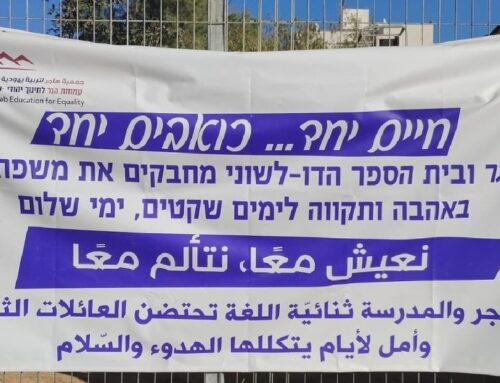Important background on the opposition in Egypt [see selection from Gershon Baskin’s Jerusalem Post column below]. –Lilly:
Encountering Peace: The roots of democracy on the Nile
Our ability to empathize with the Egyptian masses rather than to only fear them would be greatly enhanced if we learned more about the opposition groups.
…. THE MOST organized part of the opposition is of course the Muslim Brotherhood. We have very shallow knowledge of this movement, its leaders and its platform. With completely open and free elections, there is a justified fear that the Muslim Brotherhood could win a large part of the vote. We can expect it will participate in the next elections and if surveys and public opinion research are correct, it will win about 25% of the parliament.
The current leadership of the Muslim Brotherhood says openly that Egypt is not Iran. They are not ayatollahs and are not advocating a Shari’a state. They have no expectation or demand to be the ruling party and from the voices we hear in the square and from the spokesmen of the Brotherhood, this seems to be an authentic reflection.
The Muslim Brotherhood has linked itself for the time being with the leadership of Mohamed ElBaradei’s National Party for Change. No doubt this is a strange and curious marriage, but it serves the interests of both. ElBaradei has no grassroots following and the Brotherhood wishes to gain legitimacy in the wider Egyptian public and in the world that the former International Atomic Energy Agency chief brings.
This marriage of convenience should also dispel immediate fears regarding the future of Israeli-Egyptian peace. When the platform of the Muslim Brotherhood last year proposed reopening the peace agreement, central leaders of the movement such as Abdel- Moneim Abul-Futuh immediately responded that Egypt must honor its international commitments and that the peace treaty was an Egyptian interest.
As far as we know, the Muslim Brotherhood, unlike its Hamas sister in Gaza, does not have an armed wing and it makes great efforts to present itself as a legitimate political movement aimed at working within a democratic system, whose goal is not to hold democratic elections only once (as the joke in the Middle East goes).
The popularity of the Muslim Brotherhood certainly comes from the successful work it has undertaken in real social needs, poverty, education and …. [it] has worked for the ability for young people to marry legitimately. …






Leave A Comment